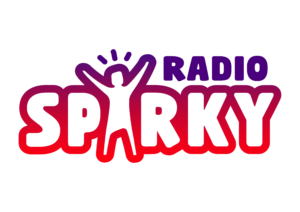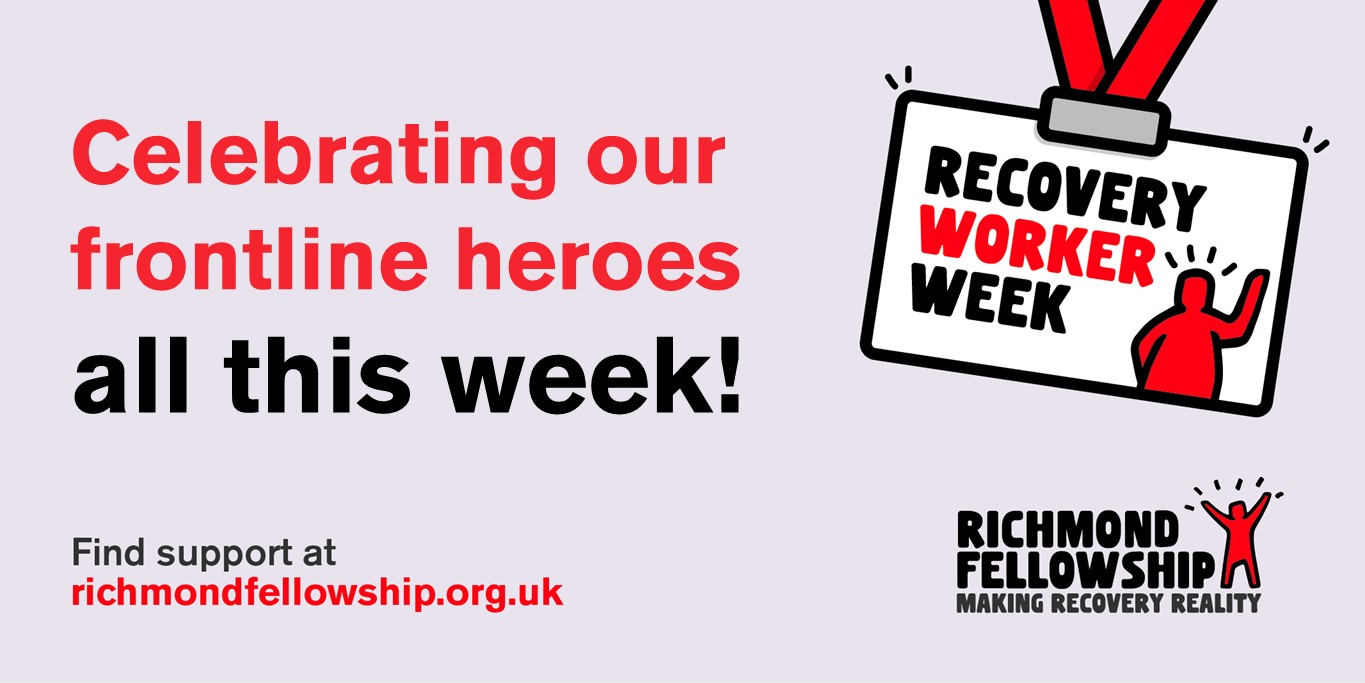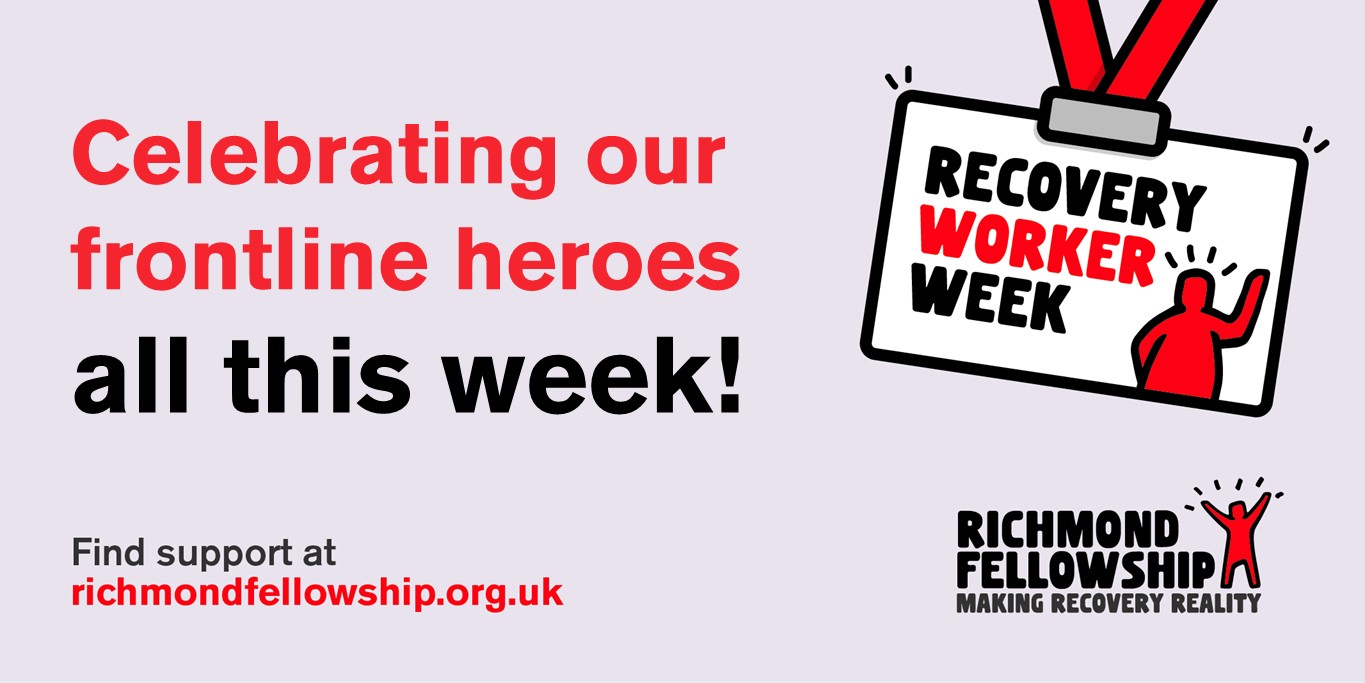Radio Sparky is the podcast shining a spotlight on the work happening on the ground in Richmond Fellowship and the wider Recovery Focus Group of charities – talking direct to staff and people we support. To mark Working Together Week our Communications and Marketing Officer Matt Webb spoke to Matt and Jordan who use our Supported Housing Service in Stowmarket, Suffolk and the service manager James.
We wanted to find out from them what co-production and Working Together really means in practice, and how they’ve made it part of the service. You can listen to the episode in full here – but if you want to have a read instead or even as well, we’ve got a transcript for you below!
Matt W: As a member of staff, it is of course working together week, what does co-production mean to you?
James: it means that we are all equal, and we are responsible for running and developing the service.
Matt: How have you managed to instill a co-production model in your service? It must have been quite a tricky thing to do, because you have to get everyone together and plan. How have you been able to make that happen?
James: Back when working together came to fruition in around 2014-15 – we are really fortunate that we have a really good community link worker, Janet, who is able to really push getting people involved in the service. Also, I think leadership is really important, so I really wanted to be quite a role model for that for staff in our services, developing a plan for example about how we are going to implement working together on a practical level.
“For example, changes as a result of that I have seen is that we always include people in the recruitment/interview process, we have people who last year helped to set the annual budget, and we also involved people in the local ways of running the service.”
They have helped formulate our approach to recovery, they have also helped out in the running of groups, and also when we are doing promotional work for mental health day, they will help to do that and run it for the day. But it is really about ensuring that it is embedded in the service and that there is a culture of working together. But also that they have got the skills and feel confident and able to dip in and dip out as they see fit as well, because it is something that you are volunteering to do, so a lot of it really is about gathering that information on RF Connect but also making people aware of what opportunities are out there.
Matt W: Matt you have been heavily involved in the working together at Cricket Meadow, tell us about the things you have been doing when you were a service user to bolster support and get fellow people we support to get involved?
Matt: I was involved in the interview processes for staff, I have been to various meetings and discussions about co-production, which can be anything from advising on policy, correcting paperwork, maybe some grammar, and having an input on the whole idea of co-production and being around that.
Matt W: Jordan, what activities do you get up to at Cricket meadow? Obviously Covid-19 has probably resulted in some of them changing in how they are delivered but what sort of things do you get up to, and how many people are usually involved?
Jordan: it is mainly 1 to 1s, opportunities for support from the staff and having a chat. But most of the activities have actually stopped at the minute because of Covid. It has changed everything really.
Matt W: How has the working together approach impacted on your recovery journey?
Matt: It has been an absolutely vital in here, and there is quite a lot of reasons for that and I haven’t got time for all of them. But, for example, I am able to use my skills where I was previously, outside of mental health, outside of the involvement that I have had with Richmond Fellowship to do with my mental health. I had skills, I was working, I could bring a lot of things.
“So rather than it be led by, rather than having a dynamic of service user and staff, I found myself embracing the idea and feeling really empowered by the working together.”
My mental health issues, previously driving it all seemed to dissipate, and I was able to stand shoulder to shoulder with the staff as human beings and working together. So it is incredibly empowering, travelling around the country, attending meetings, making connections which is often quite an unspoken aspect of co-production. But for me it is making connections with different organisations and people, whether that be at Richmond Fellowship or other organisations that attach to them, has made a massive difference and a lot of these connections have led to further opportunities, and further opportunities for co-production. So working together has had a quite, albeit a lifelong impact, a very very positive impact and certainly on my recovery going forward and I am very proud to be part of it.
Matt W: that’s really good to hear, Jordan I will put that same question to you?
Jordan: It gives you an insight of who is caring for me, and how much effort they actually put into what they do for us. Like Matt said, it gives you a chance to travel around the country a bit, and meet new people. It is really good.
Matt W: Jordan how are you finding your support through Richmond Fellowship at the moment?
Jordan: Really good to be honest. I have come a long way since I have been here, and I have changed so much since I have been here. I really want to thank them for what they have done for me.
Matt W: And Matt?
Matt: I have been involved with Richmond Fellowship since 2013, and my support has always been outstanding. I have been discharged from their service for over a year now, and yet I am still supported and to a great level.
“Particularly during Covid we had some zoom meetings, phone calls, and the level of support that was still offered even though I was discharged has been amazing even though these times plays a significant role in keeping me positive.”
Matt W: That is a really inspiring story Matt and yours as well Jordan. James thank you very much for joining us on Radio sparky to talk about working together and what it means to you across Richmond Fellowship. Gentleman thank you.
 Listen to our latest edition of Radio Sparky, the podcast which shines the spotlight on the excellent work happening at Richmond Fellowship services across the country.
Listen to our latest edition of Radio Sparky, the podcast which shines the spotlight on the excellent work happening at Richmond Fellowship services across the country.























